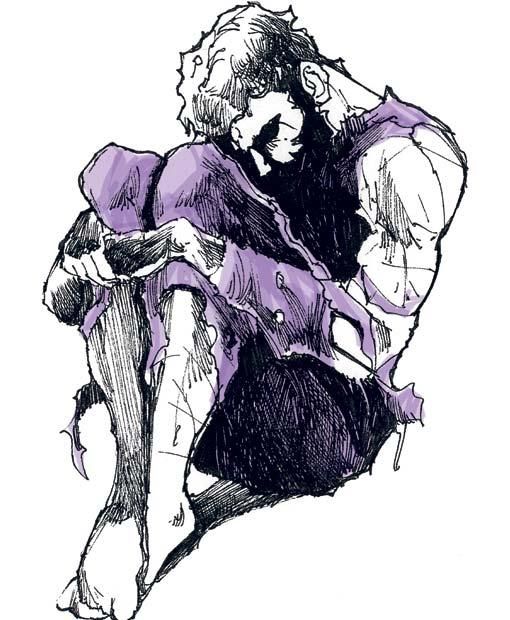Some of the most credible testimonies against the Iraq war come from those very American soldiers expected to inflict the horrors of the war on the Iraqis.
Recently, the Iraq Veterans Against the War listed 10 reasons for opposing the war. These include: "The Iraq war is based on lies and deception", "The Iraq war violates international law", and "overwhelming civilian casualties are a daily occurrence in Iraq".
Significantly, the Iraq Veterans against the War also list as a principal reason for their opposition to the war the fact that the war dehumanises the Iraqi people who are "subjected to humiliating and violent checkpoints, searches and home raids on a daily basis".
This dehumanising reality of daily life in occupied Iraq was extensively documented in an important investigation published by The Nation (July 30) in which the newspaper interviewed 50 American combat veterans of the Iraq War.
Its investigation, writes the editors, "marks the first time so many on-the-record, named eyewitnesses from within the US military have been assembled in one place to openly corroborate these assertions".
The picture that emerges from the interviews is that of a depraved and brutal colonial war and a deeply oppressive occupation, in sharp contrast to how the Bush administration and the influential media have been portraying the war.
Although many interviewees said such acts were perpetrated by a minority, they described such acts as common and often go unreported.
Specialist Jeff Englehart from Colorado, who served with the Third Brigade in Baquba, northeast of Baghdad, summed up the general attitude towards the Iraqis: "I guess while I was there," he said, "the general attitude was, a dead Iraqi is just another dead Iraqi".
In their search for insurgents, American forces usually raid suspected neighbourhoods between midnight and 5am. More often than not they find nothing but leave behind them a trail of destruction, panic and humiliation.
Sgt John Bruhns, of Philadelphia, who served in Baghdad and Abu Ghraib, and participated in raids of nearly 1,000 Iraqi homes, describes the routine:
"You grab the man of the house. You rip him out of bed in front of his wife. You put him up against the wall. You have junior-level troops... will run into the other rooms and grab the family, and you'll group them all together. Then you go into a room and you tear the room to shreds... and you get the man of the home, and you have him at gunpoint, and you'll ask the interpreter to ask him: 'Do you have any weapons? Do you have any anti-US propaganda...?'
"Normally they'll say no, because that's normally the truth," Sergeant Bruhns said. "And if you find something, then you'll detain him. If not, you'll say, 'Sorry to disturb you. Have a nice evening.' So you've just humiliated this man in front of his entire family and terrorised his entire family and you've destroyed his home. And then you go right next door and you do the same thing in a hundred homes."
Racist notions
The humiliation the veterans described was reinforced by the degrading stereotypical and racist cultural notions many soldiers had about the Arabs and Islam. "Like it was very common," said Specialist Englehart "for United States soldiers to call them derogatory terms, like camel jockeys or Jihad Johnny or, you know, sand nigger".
American soldiers who took part in neighbourhood patrols told the interviewers that they often used aggressive firing.
The irrationality of the colonial war enterprise, the humiliation, dehumanisation and loss of life it inflicts on the innocent; the cost in lives lost, lives shattered and the deep emotional scars it inflicts on the perpetrators; these and other incomprehensible realities evoked unanswered questions, poignant in their relevance, trenchant in their simplicity: "Just the carnage, all the blown-up civilians, blown-up bodies that I saw," Specialist Englehart said. "I just - I started thinking, like, Why? What was this for?"
Prof Adel Safty is Distinguished Visiting Professor at the Siberian Academy of Public Administration, Novosibirsk, Russia. He is author of From Camp David to the Gulf, Montreal, New York; and Leadership and Democracy, New York.











